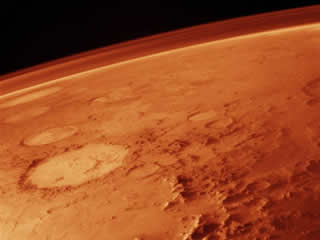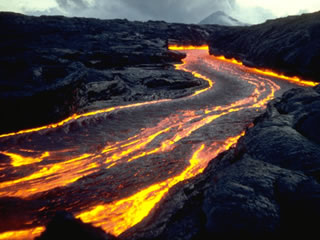Prelude
We now begin our multi-lab journey through geologic time. In this lab activity, we start with the formation of the Earth itself and the first 2 billion years of Earth's history. Although we continue to make geologic discoveries that describe Earth in the Hadean Eon, relatively little is directly known of this early time in Earth's history. Much of what we know about this time comes from a few scattered outcrops on Earth and the geologic features preserved on the Moon. Mineral crystals up to 4.4 billion years old have been found in western Australia, and outcrops in Canada are slightly over 4 Ga in age or possibly older. Younger rocks of the Archean Eon are more abundant and provide a more complete picture of Earth's geological and biological development. Each continental tectonic plate contains some Archean exposures that represent the earliest continental masses and contain the earliest fossilized life forms. These include the Yilgarn and Pilbara cratons of western Australia, the Superior craton of North America, etc.
|
Figure 8-1. Possible views of what an early Earth looked like. At center, an artistic concept of a hazy Archean Earth (courtesy NASA). Remember to click on the highlighted images to see larger versions. |
||
What Will You Do Today?
A. The Hadean & Archean Eons - Get familiar with Hadean and Archean geologic time
B. Hadean & Archean Geology and Life Forms - Review the geology, tectonics, impact events, life forms, etc. of the Earth's two earliest eons
C. Geology of Ancient Earth - Read geologic maps of Australia and Wyoming to get an idea about the geology of the ancient Earth
D. Geology of Incendium Terra - Decipher the geologic history of the sequence map diagram that represents a hypothetical Hadean landscape, Incendium Terra



